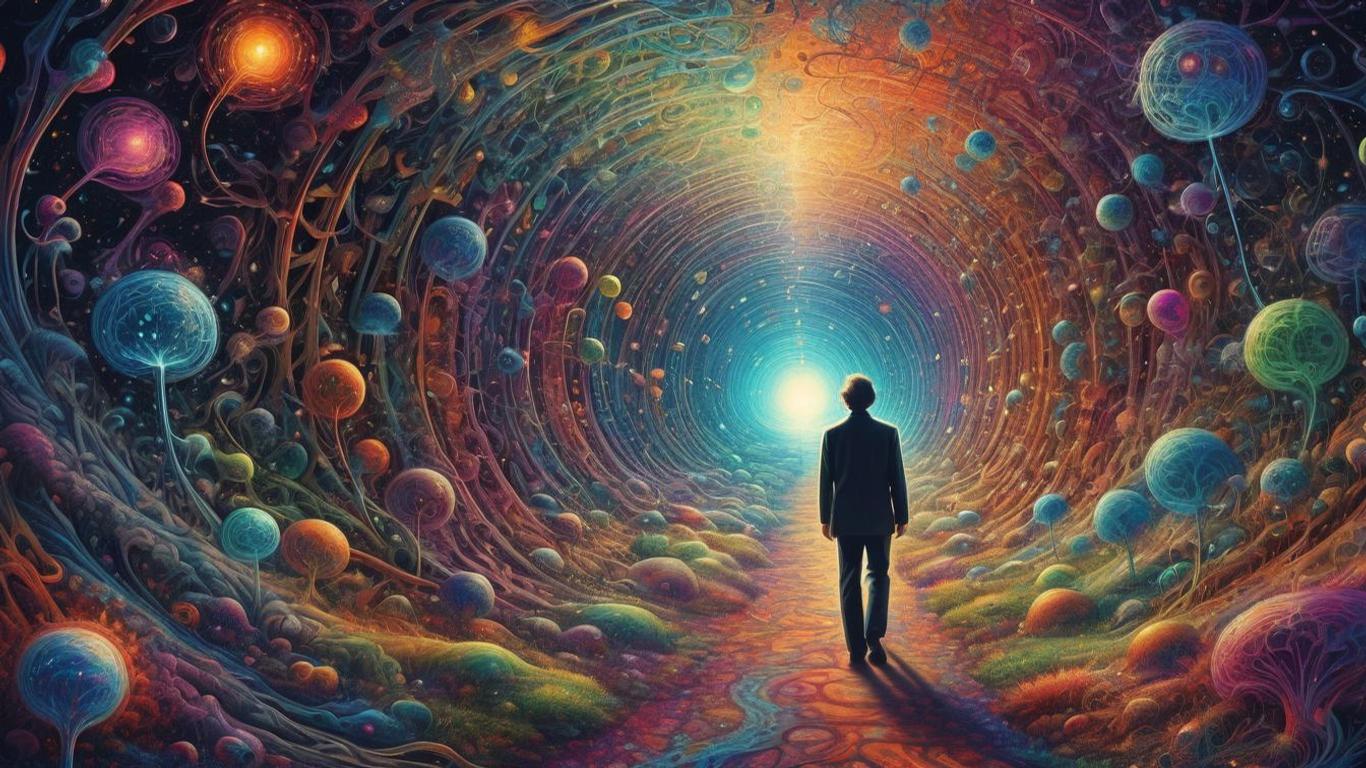Does Consciousness Create Reality: Know about Quantum Mechanics and the Power of Mind

For many years, the relationship between quantum physics and consciousness has generated a great deal of interest and controversy. The topic of whether consciousness creates reality in accordance with quantum physics persists, despite the implications of the well-known double-slit experiment and the philosophical speculations of physicists such as Erwin Schrodinger and Niels Bohr.
Since the inception of Quantum mechanics, scientists have been trying to figure out the difference between a fuzzy quantum world and fixed reality. Some say it is related to human consciousness. Even ancient Indian scriptures say so. But at the same time, many scientists have come up with new theories explaining the truth of reality by other methods
What is Quantum Mechanics?
The area of physics known as quantum mechanics examines how atoms and subatomic particles behave. Because quantum mechanics is by its very nature probabilistic, it differs from classical physics, which offers a deterministic picture of the cosmos. A quantum system's state is represented by its wave function, which captures every scenario up until a measurement is taken.
The Double-Slit Experiment
The double-slit experiment is among the most well-known studies that highlight the peculiarities of quantum physics. Particles, like electrons, fired at a barrier with two slits produce a wave-like interference pattern when shown on a screen behind the barrier. On the other hand, the interference pattern vanishes and the electrons act like particles if one notices which slit the electron goes through.
This experiment implies that the measuring or observation process has an impact on the result. This phenomena, which is often called "wave function collapse," has prompted conjecture on the influence of observer awareness on reality.
Interpretations of Quantum Mechanics
Several interpretations of quantum mechanics attempt to explain the role of the observer:
-
Copenhagen Interpretation: The classic interpretation known as the Copenhagen Interpretation, put out by Werner Heisenberg and Niels Bohr, holds that a quantum system exists in a superposition of states up until it is seen. The wave function collapses to one result upon inspection. This view is neutral regarding the observer's character, but it suggests that measurement has an impact on the system.
-
Many-Worlds Interpretation: Hugh Everett proposed the "many-worlds" interpretation, which holds that every potential result of a quantum measurement truly happens, each in its own branching reality. In this case, the observer becomes entangled with the observed system and exists in numerous realities at once, without having any influence over the result.
-
Objective Collapse Theories: According to these ideas, physical processes cause wave function collapse to occur without regard to observation. This view does not take consciousness into account.
-
Von Neumann-Wigner Interpretation: According to this explanation, the wave function collapses because of awareness. This perspective holds that a quantum event's result is largely determined by the observer's mental state.
Mind and Matter in Quantum Mechanics
Overcoming the DivideThe concept that consciousness is the source of reality has its origins in idealism, a school of philosophy that holds that reality is essentially mental. Such concepts have flourished because of the counterintuitive and non-deterministic character of quantum physics.
Theories of Quantum Consciousness
Penrose-Hameroff Reduced Objectives through Orchestration (Orch-OR): This idea, which was put out by physicist Roger Penrose and anesthesiologist Stuart Hameroff, contends that consciousness is influenced by quantum events occurring in the brain's microtubules. They contend that there may be a connection between conscious experience and the physical brain through these quantum processes.
Quantum Brain Dynamics: The theory of Quantum Brain Dynamics delves into the potential involvement of quantum effects in neuronal processing and consciousness. It implies that understanding quantum phenomena is necessary to provide a complete explanation for how the brain functions.
Conclusion
It is still up for debate whether awareness, in accordance with quantum theory, produces reality. Mainstream science typically regards these notions with skepticism, even if certain interpretations and hypotheses propose a connection between the collapse of the wave function and the observer's thinking.
Our comprehension of reality is still being tested by quantum physics, which raises important queries concerning the nature of existence and the observer's function. Whether or whether awareness is fundamentally responsible for shaping reality, the investigation of this subject challenges the status quo in philosophy and science and compels us to consider the deepest secrets of the cosmos.
One day, as the study continues, we could discover more precise solutions. Until then, one of the most exciting and hotly contested subjects in contemporary research is the interaction between consciousness and quantum physics.
(Disclaimer: The views and opinions expressed on this blog are those of the authors and do not necessarily reflect the official policy or position of any other agency, organization, employer, or company. Any content provided by our bloggers or authors is of their opinion and is not intended to malign any religion, ethnic group, club, organization, company, or individual.)










